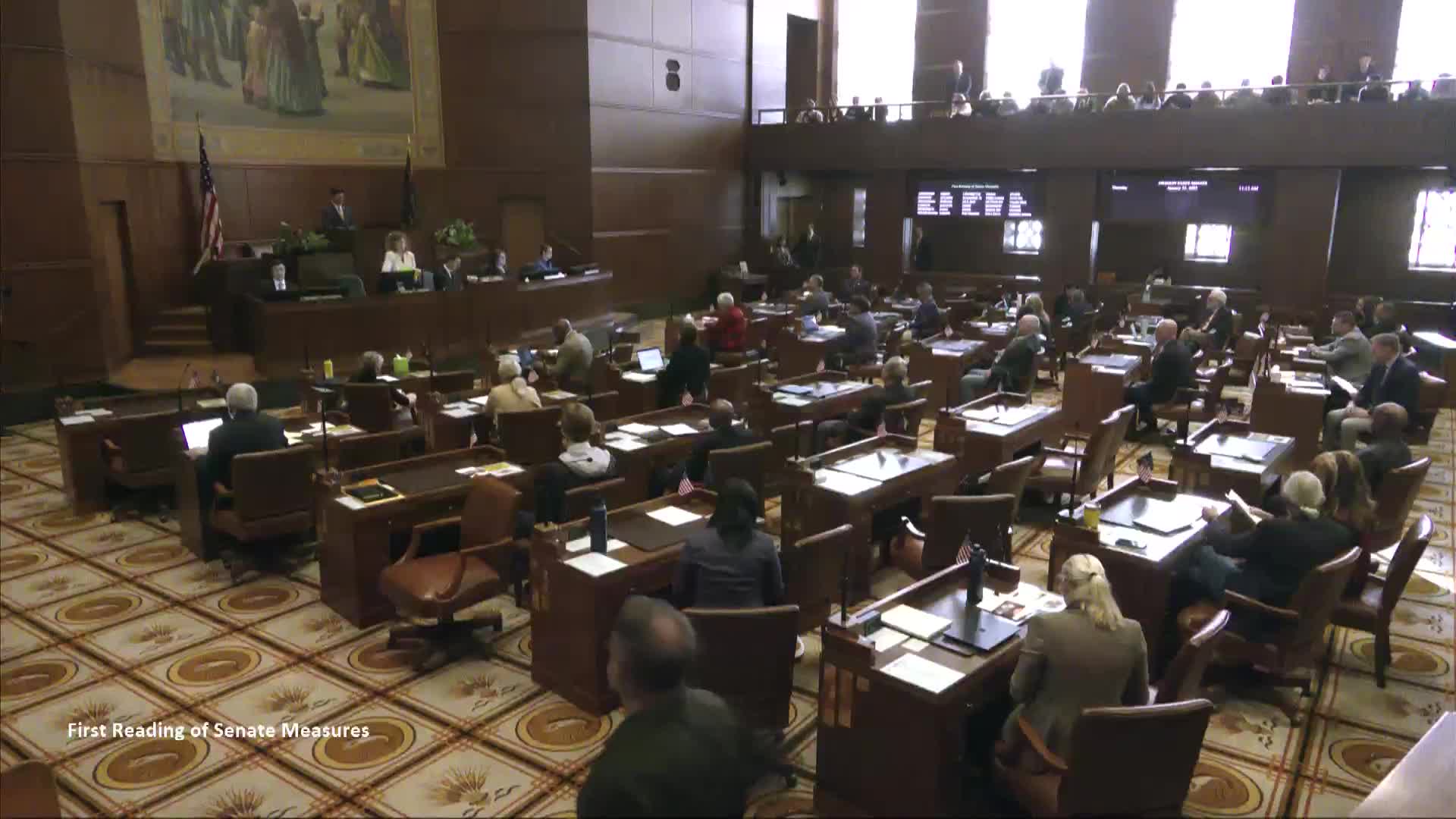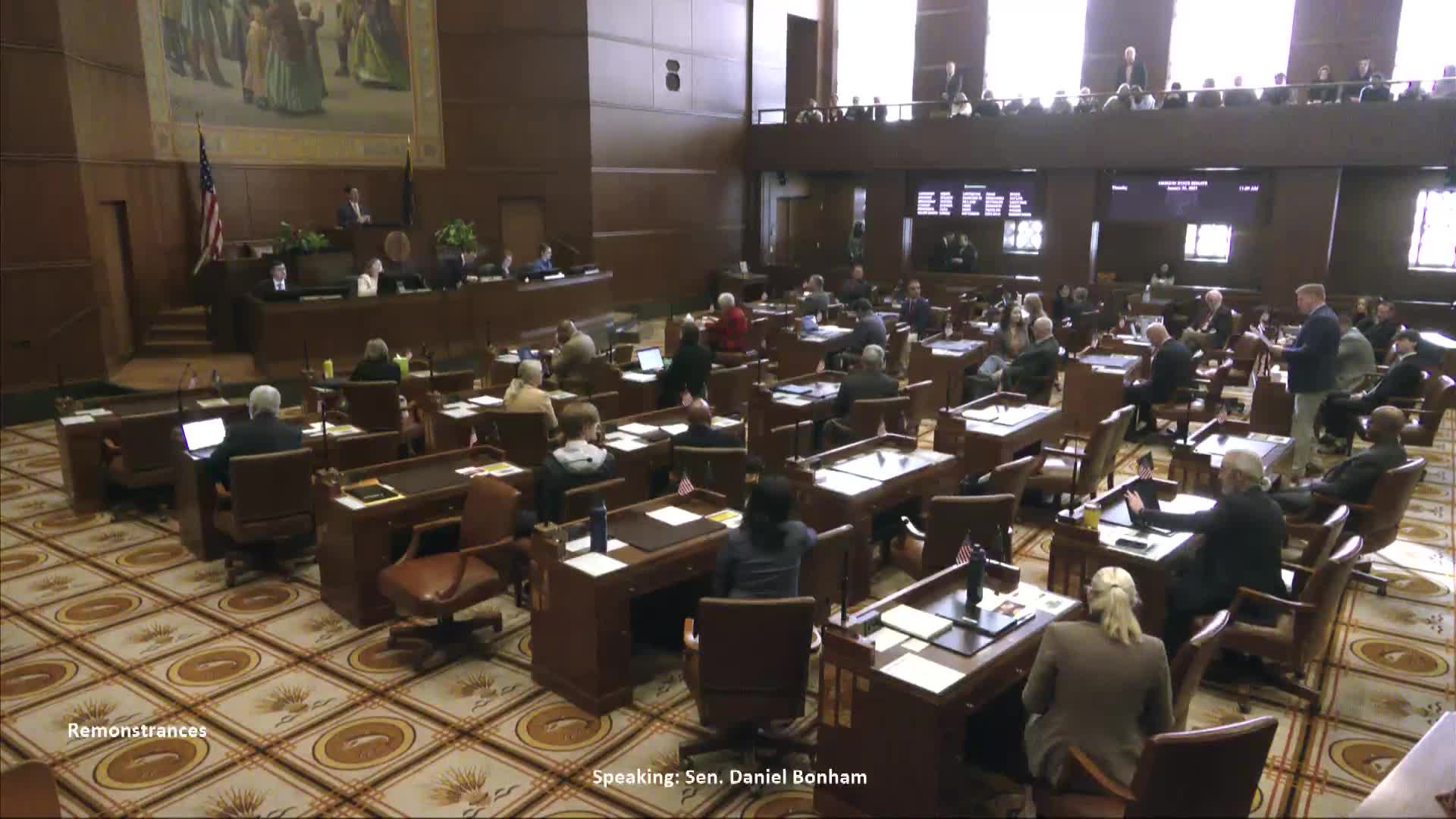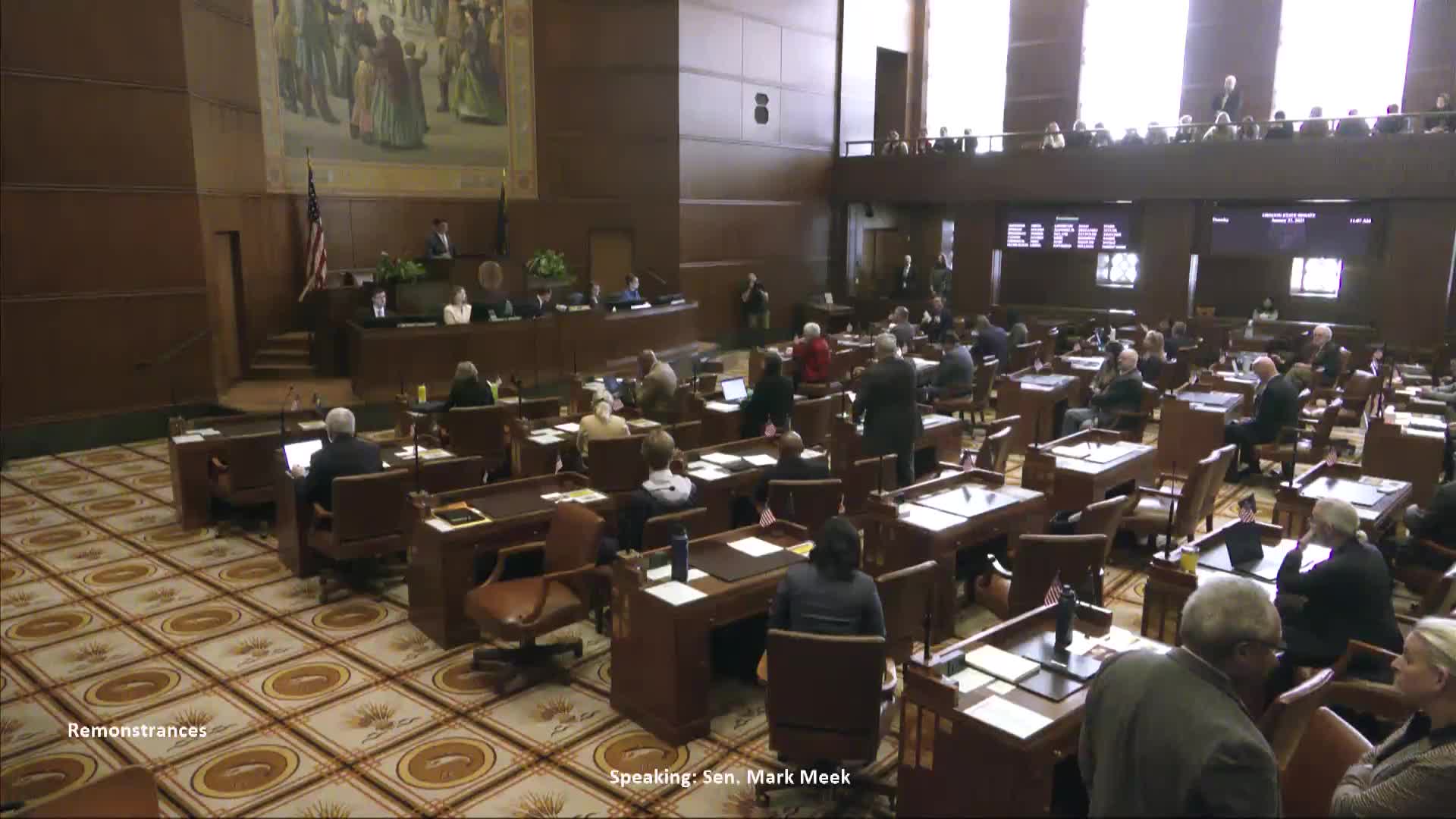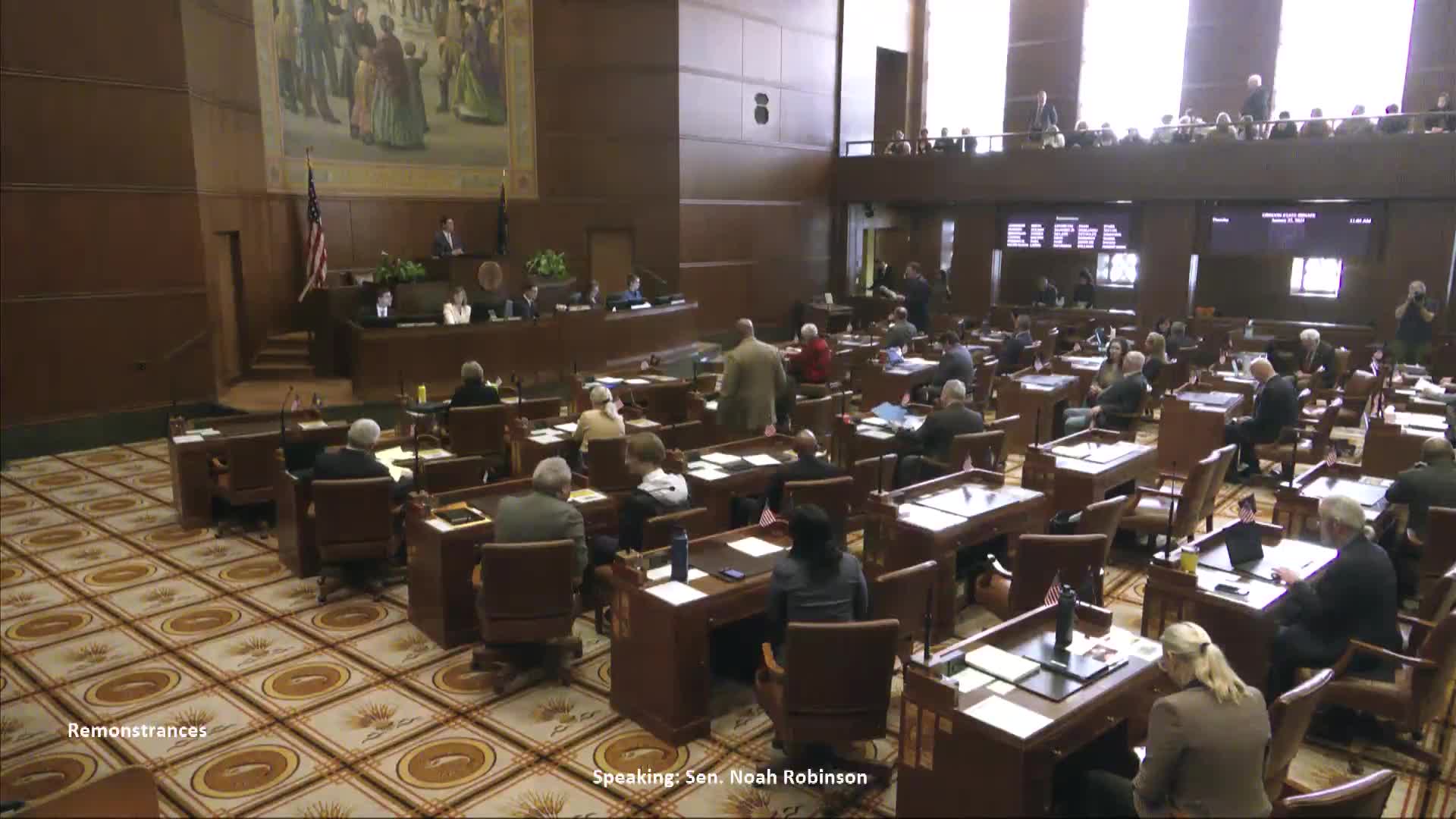Article not found
This article is no longer available. But don't worry—we've gathered other articles that discuss the same topic.

Senate gives first reading to bills 936'941; SB 941 transmitted to president's desk for referral

Senator Bonham warns Oregon OSHA housing rules could push family farms out of business

Senator Meek urges Providence to meet striking health care workers' demands on staffing and pay

